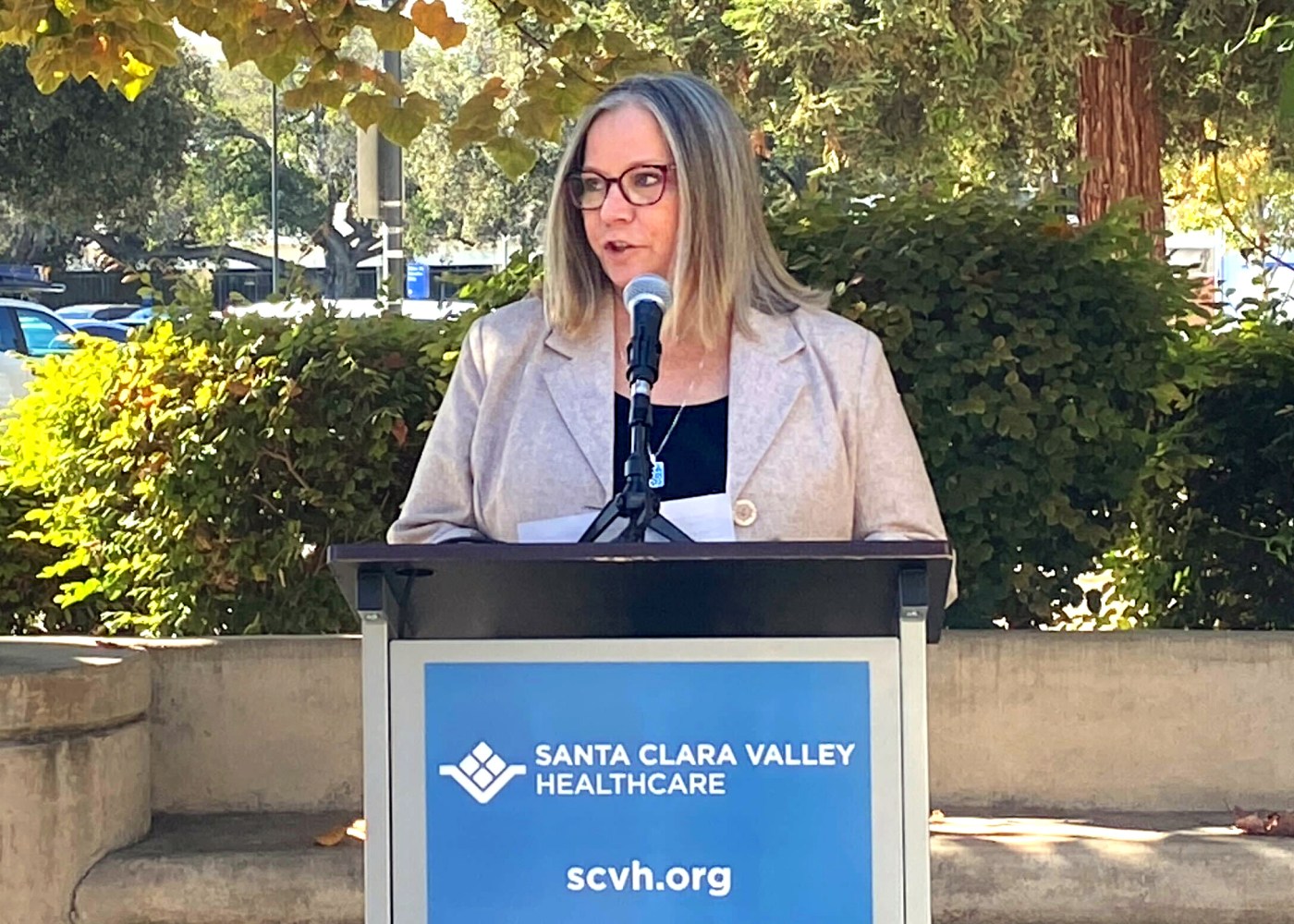
Santa Clara County one of state’s first to provide health services for people being released from prison
Santa Clara County is one of the first in the state to implement a program that would provide health services to people who are set to be released from prison or jail through Medi-Cal, county officials said at a press conference in San Jose on Tuesday.
The Justice-Involved Reentry Initiative would provide medical and behavioral health services for Medi-Cal eligible adults and youth in state prisons, county jails and youth correctional facilities 90 days before their release. Officials said Tuesday that they had already enrolled 100 people in the county’s pilot program.
Susan Ellenberg, president of the county board of supervisors, said it was important that Santa Clara County was involved in this program since the county has previously “overinvested far beyond our state-required minimum in our mental and behavioral health services” and has a history of “leadership with reentry service.” She stressed that participating in this program would help create a less traumatizing carceral system.
The program includes comprehensive care, physical and behavioral health consultations, lab and radiology services, medications and services for mental health and substance use disorders and access to durable medical equipment, which would be provided when the person is released.
According to the California Department of Health Care Services, the state is the first in the U.S. to receive federal approval to use federal Medicaid funding in state prisons, county jails and youth correctional facilities to support individuals who are preparing for their release.
Michelle De La Calle, Santa Clara Valley Healthcare director of system integration, said that the program acts like a bridge between the care inmates receive while incarcerated and Enhanced Care Management, which is a Medi-Cal benefit available to those with complex health needs.
“If you have a medical, a behavioral and a substance use disorder and maybe you are experiencing homelessness, that combination of items really complicates an individual’s life situation and it’s really hard to come out of that and be successful and not fall back into a trap of that cycle,” De La Calle said.
The program aims to address issues that formerly incarcerated people face after their release, such as equitable access to medical care, which can be a factor in recidivism. County officials acknowledged that people of color and people from lower socioeconomic classes are disproportionately represented in jails and prisons. According to the Santa Clara County District Attorney’s Office, Black and Hispanic or Latino people were disproportionately prosecuted for felonies and misdemeanors when compared to their representation in the population.
Related Articles
1 million+ patients lose coverage as insurers, hospitals drop Medicare Advantage
Voters fret high medical bills are being ignored by presidential rivals
Do I need a second dose of the new COVID-19 vaccine?
Kristof: How we can make children around the world smarter
‘I probably wouldn’t even be here.’ At 28, she learned she had breast cancer. Then came the biggest decisions of her life
“This Justice-Involved Reentry Initiative will address equity gaps and improve health outcomes for people who are or have been incarcerated, a disproportionate number of whom are people of color,” Ellenberg said.
At the press conference, Dr. Clifford Wang, Santa Clara Valley Healthcare director of custody health services, said many people in prison may be receiving care for the first time in their lives, so the program would help stabilize people with chronic health conditions by continuing their care even after they are released, leading to a smoother transition while also improving public health and safety.
Ky Lee, deputy executive for Santa Clara County, said that many formerly incarcerated people face housing instability, homelessness and barriers to gainful employment. He highlighted the county’s efforts and successes in helping formerly incarcerated people, citing Proposition 47-funded programs that led to lower recidivism rates and the county’s reentry network, which has helped triple the employment rate of its participants.
The counties of Inyo and Yuba were also participating in the program. By Oct. 1, 2026, all counties in the state will be required to implement the program.


